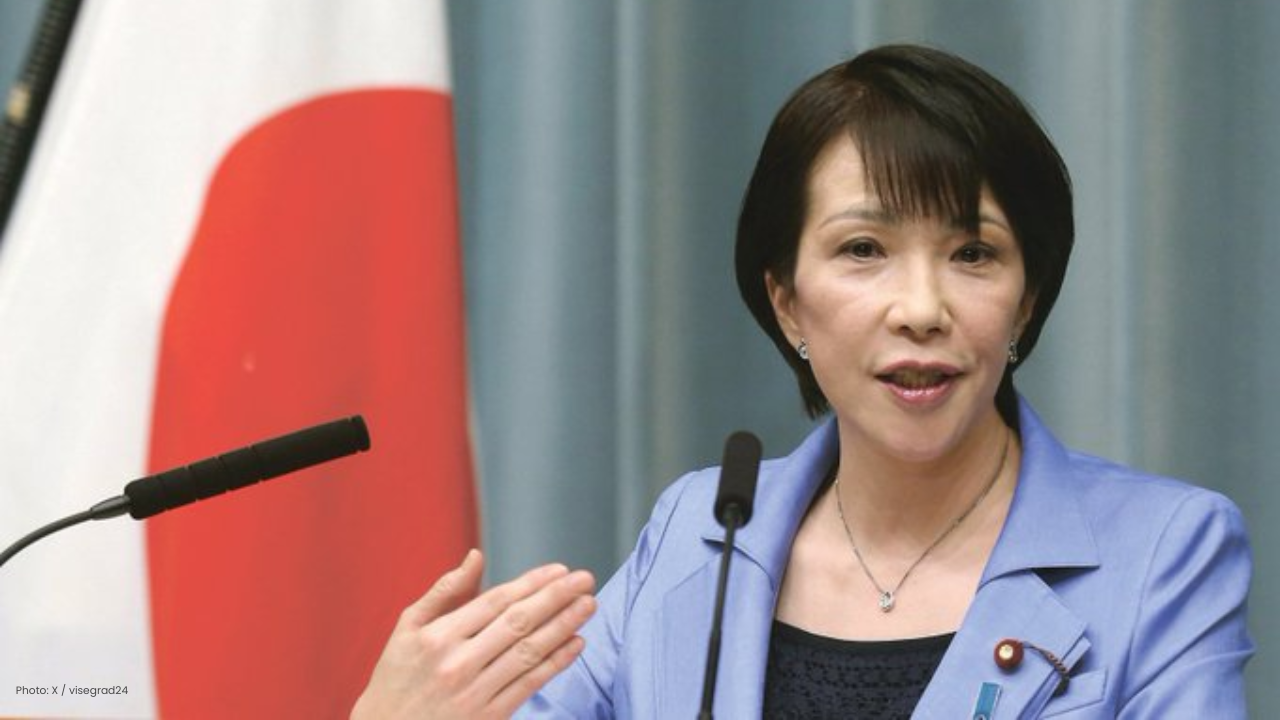You have not yet added any article to your bookmarks!

Join 10k+ people to get notified about new posts, news and tips.
Do not worry we don't spam!

Post by : Sameer Farouq
Japan is entering another moment of political change after Prime Minister Ishiba announced his resignation earlier this month. Following his decision, several leading political figures have stepped into the race to head the ruling party and become Japan’s next prime minister. Among them is Sanae Takaichi, a seasoned politician who is aiming to make history as Japan’s first female prime minister.
Takaichi, well-known for her strong views on the economy and monetary policy, officially confirmed that she would run in the party leadership election. She will hold a press conference on Friday to share her vision and explain the policies she wishes to pursue if chosen. Her candidacy has already stirred excitement, as well as debate, within the ruling party and across the nation.
Sanae Takaichi has built her reputation as a “fiscal dove” — meaning she favors more government spending to boost the economy rather than relying heavily on strict budget cuts or aggressive interest rate hikes. Unlike many other candidates, she has spoken strongly against the Bank of Japan’s recent moves to raise interest rates.
Instead, Takaichi believes Japan’s fragile economy needs more financial support from the government. She wants to increase spending to help reflate the economy, encourage growth, and ease the struggles of ordinary citizens who continue to feel the burden of rising prices.
If successful, Takaichi would become the first female leader of Japan, breaking a historic barrier in a country where the top political positions have long been dominated by men.
Prime Minister Ishiba decided to step down after less than a year in office. His leadership came under heavy criticism after a series of election losses that weakened the ruling party’s standing. By resigning, Ishiba took responsibility for those setbacks, opening the door for new candidates to compete for leadership.
The race to replace him is now in full swing, with several key figures putting forward their names. Alongside Takaichi, the confirmed candidates include:
Shinjiro Koizumi – Current Minister of Agriculture, Forestry, and Fisheries. Young, popular, and seen as a reformist, Koizumi is considered one of the frontrunners.
Yoshimasa Hayashi – Chief Cabinet Secretary, who promises continuity with some of Ishiba’s policies, especially in supporting wage growth.
Toshimitsu Motegi – Former foreign minister, known for his diplomatic skills, who wants to negotiate more trade benefits with the United States.
Takayuki Kobayashi – Former economic security minister, also competing in the leadership race.
Yoshimasa Hayashi has also been gaining attention in the race. He recently announced that his key focus would be to help ordinary households handle the stress of rising living costs. To do this, he wants to ensure that wage increases spread beyond big corporations and reach smaller companies too. His goal is to achieve around 1% real wage growth across the country.
However, Hayashi made it clear that he does not support cutting Japan’s consumption tax. He explained that the tax is crucial because it funds social welfare programs, which are becoming more expensive as Japan’s population ages rapidly.
When asked about former Prime Minister Shinzo Abe’s “Abenomics” policies — which relied heavily on government spending and monetary stimulus — Hayashi said those policies were effective at the time but argued that Japan’s economy has now moved into a new phase. With the Bank of Japan raising interest rates, he said, the country must adapt to new economic realities.
Former foreign minister Toshimitsu Motegi, another candidate in the race, has highlighted his strength in international relations. He stated that if conditions allow, he would negotiate with the United States to reduce tariffs even further, which could benefit Japan’s exporters and strengthen the economy.
Motegi’s campaign seems aimed at voters who prioritize Japan’s global position and trade ties, especially with the U.S., a critical partner.
Shinjiro Koizumi has quickly emerged as the most popular candidate among ordinary citizens. According to a poll conducted recently, Koizumi received 23.8% support, making him the frontrunner. Sanae Takaichi followed closely behind with 21%, showing she has a strong chance of winning if she can mobilize broader support within the ruling party.
Meanwhile, both Hayashi and Motegi received 5.9% each in the poll, placing them behind Koizumi and Takaichi in terms of public opinion.
Koizumi’s popularity is partly due to his image as a young, fresh leader who can bring new ideas to Japanese politics. Many citizens see him as someone who could modernize the ruling party and connect with younger generations.
The upcoming leadership election is not just about choosing a new head of the ruling party. It is about deciding who will lead Japan through serious challenges.
Japan’s economy has been struggling with slow growth, high living costs, and the impact of global economic shifts. At the same time, the country faces long-term issues such as an ageing population, shrinking workforce, and the need to strengthen its defense and international role in a rapidly changing world.
Whoever wins will have to balance these priorities while keeping the party united. The decision will also shape Japan’s policies for years to come, affecting millions of citizens.
The leadership contest is expected to heat up in the coming days. Each candidate will hold press conferences, announce their key policies, and work to win support from both party members and the general public.
Takaichi is preparing to present her detailed plans this Friday, and many eyes will be on her speech to see if she can secure enough backing to become the country’s first female prime minister.
As the race continues, the question remains: Will Japan choose tradition, reform, or history-making change?










IOC & BPCL Discover New Oil Reserves in Abu Dhabi, Boost India’s Energy Security
IOC and BPCL’s joint venture UBPL made fresh oil discoveries in Abu Dhabi’s Onshore Block 1, marking

Singapore’s Opposition Leader Faces Removal Over False Testimony
Singapore’s Parliament will debate removing Opposition Leader Pritam Singh after his conviction for

China Halts Nvidia H200 AI Chip Imports, Tightens Tech Purchase Rules
China bars Nvidia's H200 AI chips, restricting purchases to R&D only amid rising US-China tech tensi

Kim Yo Jong Rejects South Korea’s Peace Hopes, Demands Apology Now
Kim Yo Jong says South Korea’s hopes for better ties are impossible and demands apology over drone i

Turkey Eyes Saudi-Pakistan Security Pact Like NATO’s Defense Deal
Turkey plans to join a Saudi-Pakistan security alliance with collective defense, sharing military an

Gold Nears Record High, Silver Breaks $90 on Rate Cut Hopes
Gold hovered near a record peak while silver surged past $90 as weak U.S. inflation data strengthene